Time running out, British hostages' families warn
- Published
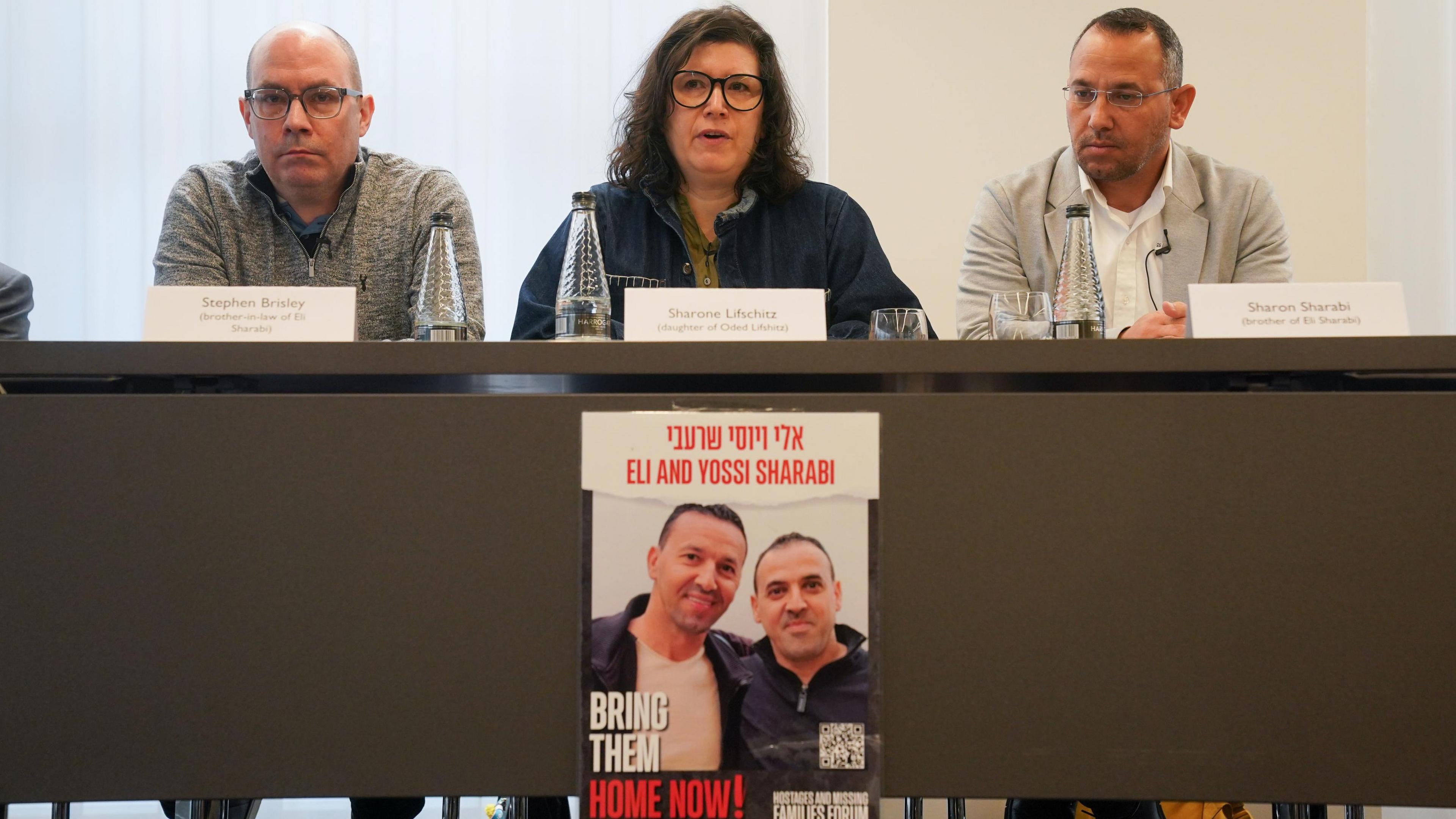
A press conference in London on Wednesday heard from Stephen Brisley (L), Sharone Lifschitz (centre), Sharon Sharabi (R)
The families of British hostages and those with British connections held by Hamas have said that if a deal is not reached to release the hostages soon, they may never come home.
A delegation representing four families has met Prime Minister Rishi Sunak and the Qatari foreign affairs minister.
Among them was Steve Brisley, from South Wales, who is campaigning to free his brother-in-law Eli Sharabi.
"Now is the time to secure the deal," he said.
His Bristol-born sister Lianne Sharabi and his nieces Noiya, 16, and Yahel, 13, were murdered on 7 October when Hamas launched a series of cross-border attacks from the Gaza Strip on southern Israel.
Eli's brother Yossi was also kidnapped but died in captivity three weeks ago.
Mr Brisley said he was "executed" by Hamas, but the group has claimed he was killed in an Israeli airstrike.
At a press conference in London, he described videos that Hamas released of Yossi before and after he was killed as "taunting our family".
"This is what failure looks like, failure of international diplomacy, failure to release the hostages," he said.
Negotiations for a deal which would see hostages returned is being discussed by Israel and Hamas.
Reports say Hamas is demanding the release of thousands of Palestinian prisoners, the withdrawal of Israeli forces and an end to the war.
According to a draft seen by Reuters news agency, this would involve three truce phases with the first seeing all Israeli women hostages, males under 19, the elderly and sick exchanged for Palestinian women and children held in Israeli jails.
Remaining Israeli male hostages would be exchanged in the second phase.
But the offer is likely to be unacceptable to Israel's prime minister, who has called for "total victory" in Gaza.
Mr Brisley said: "If this current deal doesn't bring the hostages home there is a very real chance they will never come home."
Sharone Lifschitz, a British citizen, saw her mother Yochoved released in October but her 83-year-old father Oded is still being held.
"Israel has a duty to return its citizens and Israel will have to make difficult choices," she said.
"In the past it has released many Palestinian prisoners and it will have to do that... I don't think it has a choice."
But she also pointed out that her mother had previously been released as a humanitarian gesture, and others should be released in the same way.
"Hamas doesn't need a deal to release hostages... nothing is stopping Hamas releasing people for humanitarian reasons," she said.

In tears she said they were still living as if it was 7 October.
"With every day that passes the chances of all the hostages, the chances of my father, reduces," she said.
Hamas is also holding British citizen Nadav Popplewell and another British citizen whose family have asked for privacy.
The families described the London meeting with the prime minister and Qatari minister as encouraging.
Mr Brisley said it was helpful to look them in the eyes "so they are aware that it's about families, about people".
He said Mr Sunak had explained to them the hostages are always on his mind.
The prime minister told them he carried a "Bring them Home" dog tag necklace he was given by the father of another hostage in his pocket and on his desk "to remind him of the importance of hostages", he said.
On Tuesday, the Israel Defence Forces (IDF) confirmed that 29 of the hostages kidnapped by Hamas on 7 October have died.
About a hundred are still being held.
Sharon Sharabi, the other brother-in-law of Eli and Yossi Sharabi, said this terrible news showed this was now the time to act not talk.
"The time is running out. This is not a slogan," he said.
"You saw what happened to Yossi. We don't want all the hostages to come back in coffins or maybe not at all.
"We are doing everything to bring you back home."
About 1,200 people were killed during the Hamas attacks on southern Israel on 7 October last year.
The armed group is proscribed as a terrorist organisation by many Western governments, including the UK and US.
In the Gaza Strip, more than 27,700 Palestinians have been killed and at least 65,000 injured by the war launched by Israel in response, according to the Hamas-run health ministry.
Correction 13th February: This article wrongly reported that about 1,300 people had been killed following the 7th October attack by Hamas. This was based on counting those who later died from their injuries in addition to the figure of more than 1,200. The article has been amended to now refer to about 1,200 deaths, a figure which includes those deaths and which Israel says is not final.
Related topics
- Published27 February
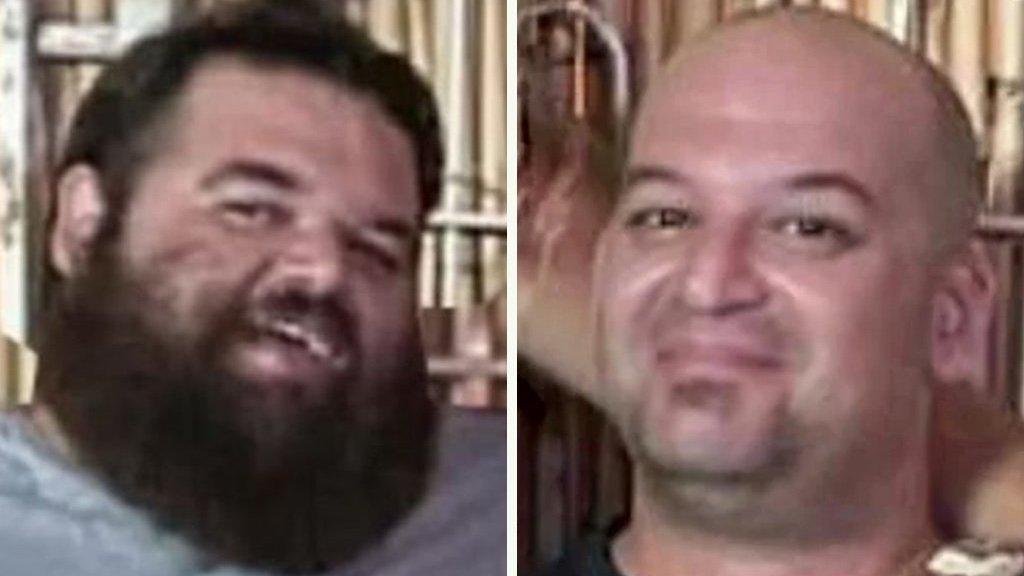
- Published27 February
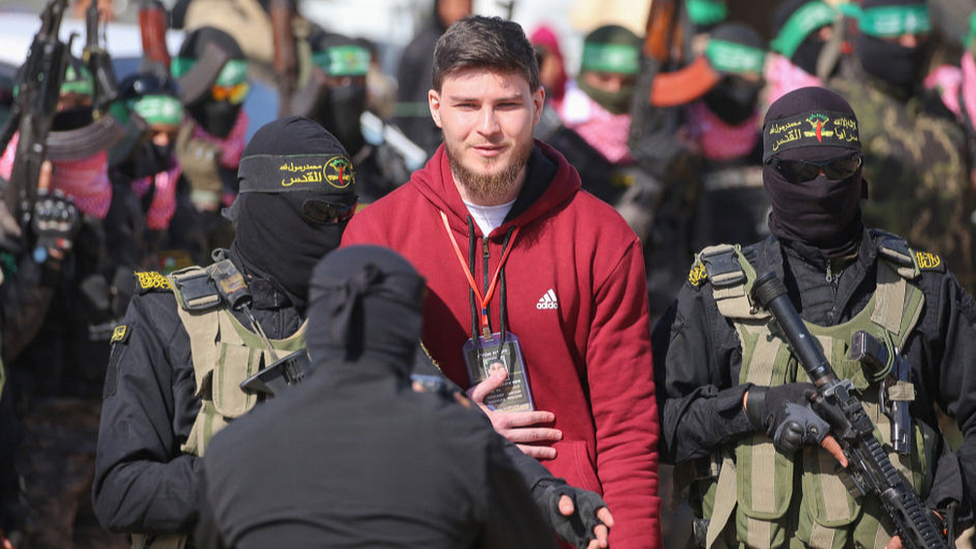
- Published25 November 2023
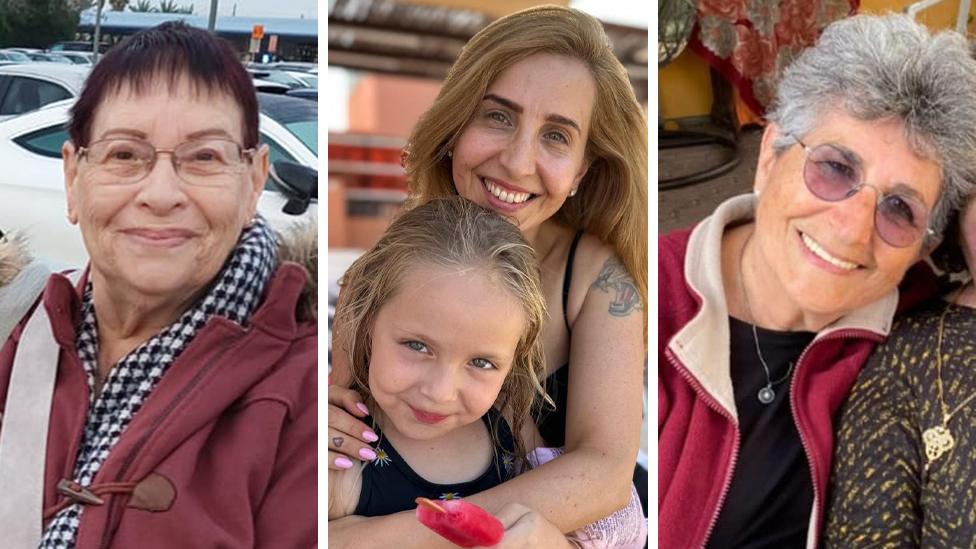
- Published30 October 2023
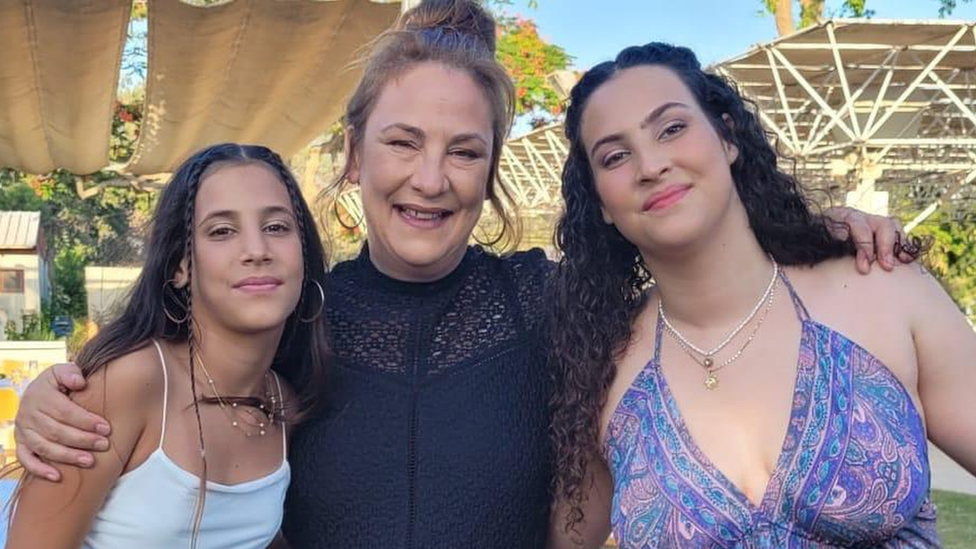
- Published25 October 2023
